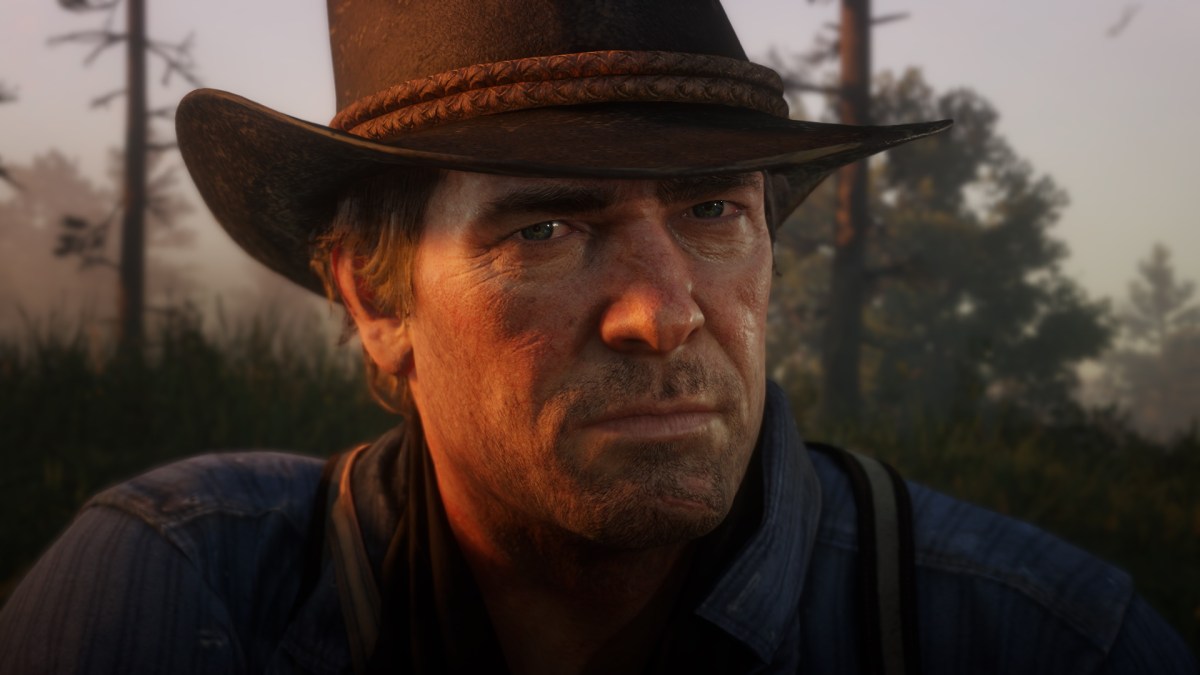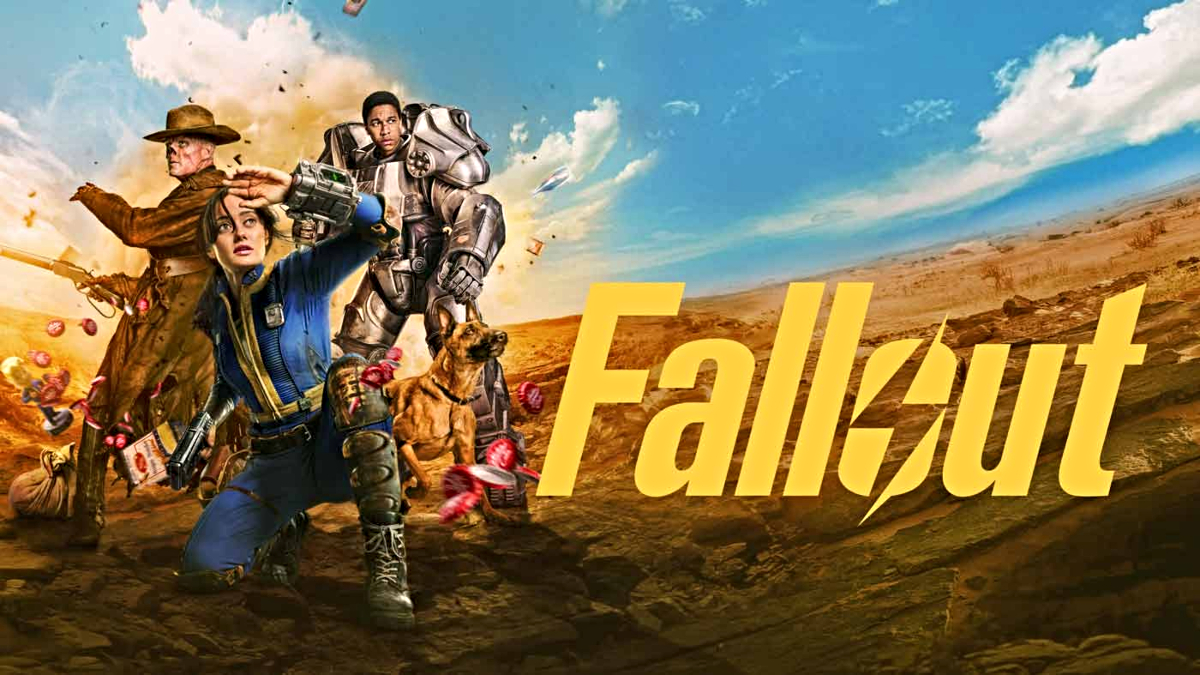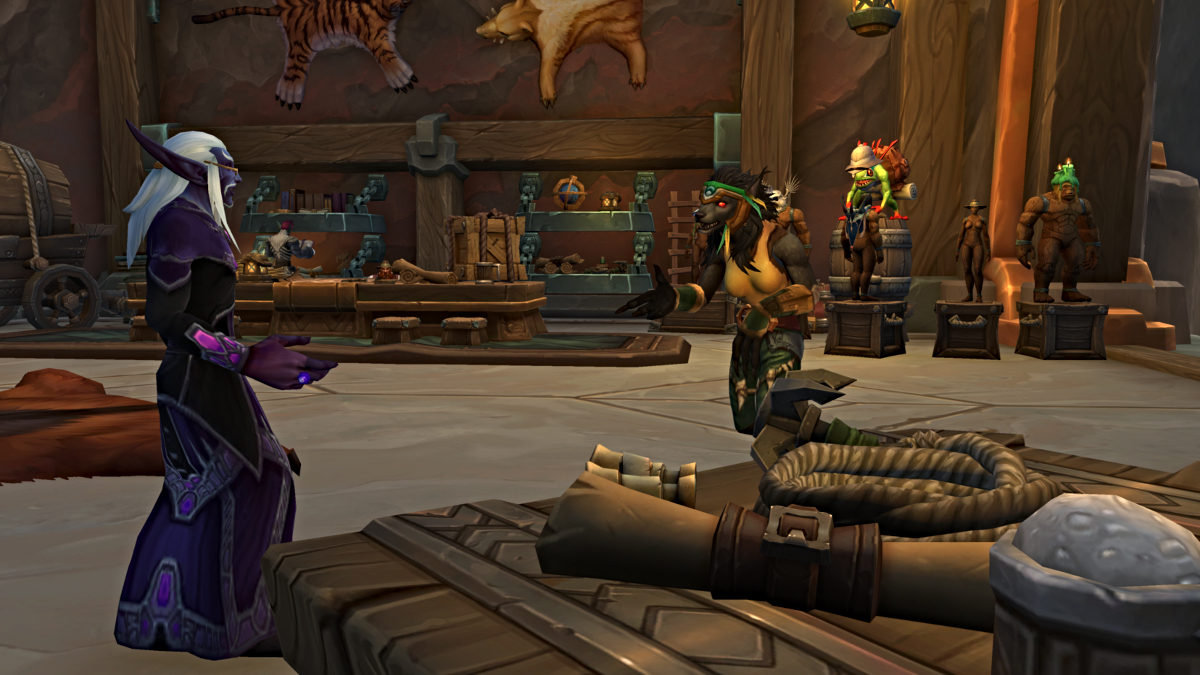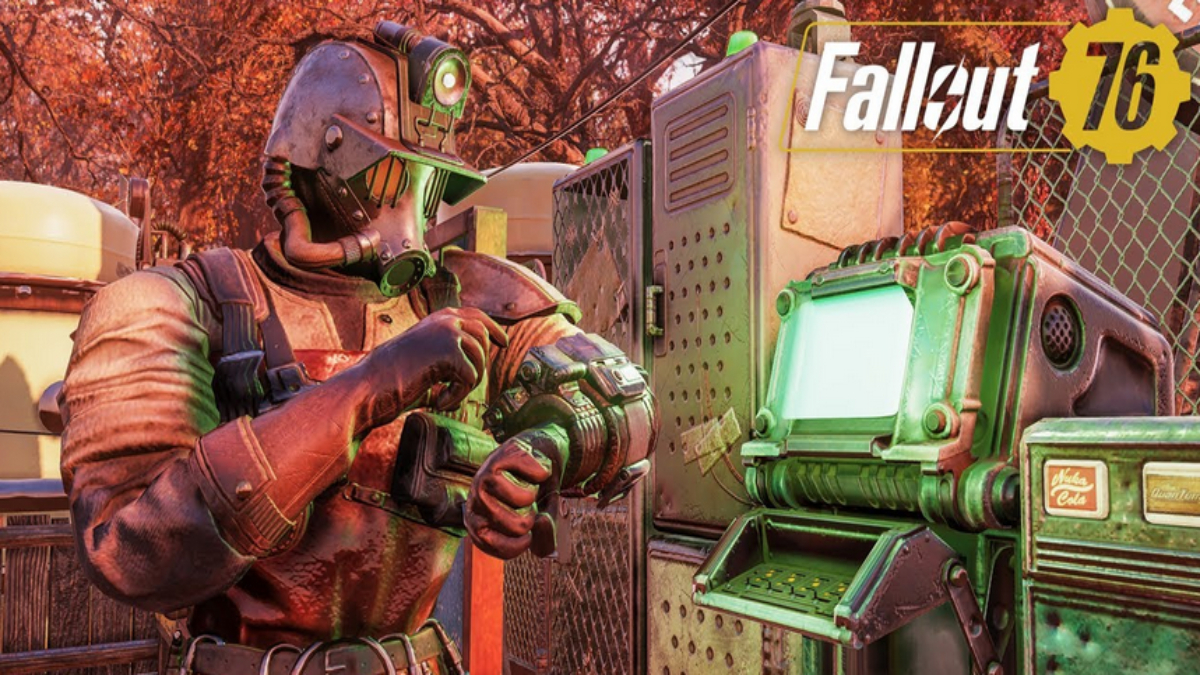Red Dead Redemption 2 is one of the most popular and well-received games of this generation, winning Twinfinite’s Game of the Year Award for 2018, and the end of year award for many other publications as well.
While the story in particular is what made Red Dead Redemption 2 stand out in an era where there is no shortage of great games, any tale worth telling needs a hero that gamers can latch onto and root for.
There was perhaps no hero in any game from 2018 that fits that bill better than Arthur Morgan, who came to life thanks to the excellent acting of Roger Clark.
Recently, Twinfinite had the opportunity to chat with Clark, and we wanted to dive deep into what the experience of being the main character of a major AAA video game is like.
Without any further ado then, let’s jump right into our conversation with Roger Clark, the man who portrayed Red Dead Redemption 2’s Arthur Morgan.
Hayes Madsen of Twinfinite: Was performance capture something you’d done before Red Dead Redemption II?
Roger Clark (Arthur Morgan): I had done it once before on a game almost a dozen years ago called Shellshocked 2, but to be honest the technology had advanced so much, especially Rockstar’s technology.
It was kind of like learning it all over again, I remember certain limitations on Shellshocked 2 that when I walked in on Rockstars studio and went “What about this?” They said what do you mean, that’s not an issue, it’s never been an issue.
One thing that they really understand is that motion capture is a brand new medium, not so much brand new but relatively new, and it’s developing right in front of our very eyes, and I got to see that as a performer and there are amazing freedoms within it, and some limitations too. But we started to move away from that and use a facecam instead, and as an actor that’s a huge bonus.
Sometimes you’re running around and getting sweaty those balls fall off and other times, if you just want to do a nonchalant physical gesture of just wiping your face or something, with balls on your face you can’t do that. That can take you out of the performance, but we didn’t have that problem.
Hayes: Was there any other research you did, considering how much Red Dead Redemption II is a kind of period piece? How’d you go about getting the accent down?
Roger Clark: Well, when I first started being considered for the role I remember I was chatting to a friend from Flagstaff, Arizona who was helping me with my dialect.
Red Dead is historically accurate but not geographically, so I think it gives a little bit of artistic license as to Arthur’s dialect not having to be from one specific location, also considering that from a very young age he’s traveling all over the country fleeing whatever authorities that he’s managed to piss off.
So I was just looking for consistency more than anything else, but I’ve been a huge fan of Westerns all my life, so I had a lot of favorite movies to draw upon.
I remember asking (Director) Rod Edge for any particular films he would recommend, and obviously we had a lot of similar ones like The Good the Bad and the Ugly, High Noon, a lot of John Wayne’s where you really see that sardonic dry wit of his. But one thing he said that I hadn’t seen before was technically not a Western, because it’s set in the Australian outback, but The Proposition with Ray Winstone and Guy Pearce.
That helped me a lot, because it really helped me get an idea as to where the writers were going with Guy Pearce’s character as being forced to betray some of his loyalties to his brother. Something similar that Arthur has the conflict of, when he sees his fearless leader start to go down a certain moral conundrum. So there’s that dilemma from The Proposition that I really took a few pages out of for Arthur’s story.

Hayes: Is there a certain aspect of the game that you recorded that is your favorite? Like is it the Stranger Missions, or the tense moments with Dutch and the rest of the gang?
Roger Clark: Oh wow, yeah, it was five years of work. I loved every minute of it to be honest, it certainly had its challenges, but it was a very fulfilling environment that was created, and that’s partly to do with the crew and the amazing director that we had Rod Edge, and the animators, and writing.
But also my colleagues, especially the guys that had been in the previous game; Benjamin Byron Davis, Rob Wiethoff, Steven Palmer. Those guys welcomed me with open arms, and I was a little nervous because I knew I was the playable character now.
We hit the ground running, and we developed a very solid trust very quickly, which really helps the work I think. Some of the Stranger Missions were so much fun, because you know one actor would pop in for four or five days and we’d crunch them all out. But other times, like in the third, fourth, and fifth year, when you see an old friend come back that you might not have seen for a couple of months, that was a very special time too.
Usually we’d all have new sides, and we’d be like “Oh what did you think of this bit? I didn’t see that coming.” It was funny too, because I got to be fairly well versed in performance capture, and most days there was at least one actor who’d never put the suit on before. Watching them come to grips with it in their own individual way and doing what I could to help make them feel comfortable, that was kind of rewarding too.
Hayes: For a lot of players one of their favorite scenes is the bar scene with Lenny, which is very different from the rest of the game. What was recording that particular scene like?
Roger Clark: (Laughs) Yeah, we did that over like two or three days, and I’d known Harron Atkins who plays Lenny very well by that point, and it was real fun to do that with him. But as I recall they did explain to me while we were doing it, saying “What we’re going for is some really frenetic editing that’s not going to be characteristic with the rest of the game, but just kinda want to convey drunkenness.”
So it was loads of little bits and bobs, it was kind of interjected. We were running from one space of the studio volume to another going “Okay now start punching each other in the face. Okay now let’s do the Can Can, come on quick.” I don’t want to say that we were rushed, but it was very episodic, let’s put it that way. It was a lot of fun too.
Hayes: It was probably supposed to be that way I would guess.
Roger Clark: Exactly! You know running around, falling on my ass, trying to be as drunk as possible.

Hayes: Is there anything that you particularly liked that didn’t make it in the final game? Anything that you kind of wish did make it?
Roger Clark: Yes and no, I mean there was a lot of things that we did that were cut, but you have trust in the studio. They certainly have come out with some pretty decent titles beforehand (laughs), that would be an understatement.
So, no one knows how the flow of a Rockstar game should go as well as Sam and Dan Houser, and the likes of Rob Nelson, etc. So it was pretty early in the process that we learned to trust them, and that they knew what they were doing.
Yeah, there were lots, too many to mention though, I can’t really think of anything specific. I was really proud of practically all the work we did.
One thing I will say, you know, there were certain narrative things that kind of changed as the character developed throughout the writing and filming of everything. A circumstance happened rather early on in the game that gave Arthur a lot of anger and frustration, and then when we decided to cut that a lot the anger and frustration didn’t make sense, and he just came across as a pretty grumpy fellow.
So we went back and changed some things because of that, but ultimately it served the story a little better, and it made Arthur a little more ambiguous at the beginning. Which I think is important, because the player’s going to play in their own way, and you want to have a character, that’s what I was going for anyway, to come up with a character who makes sense whether he’s a complete bastard or if the player decides to choose the honorable path. You want to come up with a complex enough character where it would make sense either way.
Hayes: Leading to the next question, there are basically two different scenes that can play at times depending on the moral choice that you made. How did you separate those two different versions of Arthur?
Roger Clark: At first it was a challenge, I was like how am I gonna keep both of these performances truthful. Whenever I’d get worried about that I’d try to remind myself that people are very complex creatures, and some of the more interesting characters that I like are the ones that do things that contradict themselves. But you can contradict yourself in an honest, believable way I find.
I mean Gene Hackman does it almost all the time, in Unforgiven he’s a pretty nasty fellow, but there are times where you see the love he puts into building his house and the love that he has for certain people. The interesting aspects of a person’s character often lies in the contradictory nature of it.
I guess I tried to embrace that, whenever I was like “Oh my gosh, those are two totally different ways to do it.” I would just try to do whatever was most honest for the situations at hand.

Hayes: I think we can say fan reception has been pretty good overall to Arthur as a character. Did you ever have any inclination that he was going to be so popular?
Roger Clark: No, I had hoped obviously that people would appreciate my work. But really what I was aiming for was following in the footsteps of a character such as John Marston. I was just hoping that they wouldn’t hate me (laughs).
Because I was a huge fan of the previous one and before the game came out, rightfully so, there were a lot of reactions like “Well, he ain’t John Marston.” But then having read that and seen that online, and then to see the general reaction shift from that to “Oh we really like Arthur.”
That is so rewarding. The time that people have taken to reach out to me, whether it be on Twitter or Instagram, and just say how much Arthur means to him, and his journey. You know, people like veterans with PTSD, and bullied school children, and a lot of people getting over bereavements in the family, and saying how much the game helped them get to terms with all that.
It was a responsibility that I really had not expected, and it’s kind of humbling and I’m honored really. Just so so fulfilled that people liked the work, the joy is in doing, and if the audience loves it as well that’s just gravy. I’m really fortunate.
Hayes: What do you think it is about Red Dead Redemption 2’s story that you think makes it so impactful for fans in today’s modern era?
Roger Clark: Gosh, well you know the death of the outlaw. All three games, as a matter of fact, are set toward the end of the Wild West. I think one of the main themes of Red Dead 2 is the death of the outlaw and the coming of a new world, and one way of life being challenged by the inevitable future that’s just coming at you like a train.
I think that metaphor still applies today. I think there’s a certain sentimentality for the past, and also Red Dead has an honor among thieves kind of message as well.
The Western is just, it was the first genre in film, and it’s never really disappeared. And I think one of the reasons why is just we as people, when we see an open field like that, it just kind of screams freedom. But it’s not that free, sometimes, and that conflict and the good and bad is something that we all like, we can all respond to.
Hayes: You mentioned earlier how welcoming the other cast members had been. You recorded for so many years, were there any lasting friendships you forged out of this experience?
Roger Clark: I would have to say, yeah, pretty much all of them (laughs). We’re all still in touch and, yeah, seeing each other, it’s probably the most fulfilling job in my entire career. Especially in regards to the friends that I made and the colleagues that I’ve learned to trust and admire.
Pretty much all of them, except for Peter Blomquist (Micah Bell’s actor) he’s a total total jerk, and you can quote me on that (laughs) I’m joking! I’m totally totally joking. But no, you can quote me on that if you want, I’d love for him to read that (laughs).
Hayes: Were there a lot of scenes that were recorded together, or was most of the game recorded separately and put together?
Roger Clark: All of the cutscenes were done, performed, much like theater in the round or film. Meaning that the audio, the performance, it was all done simultaneously, which I believe really helped the performances.
I know a lot of games they’ll do the mocap and then later on the actor will dub the dialogue in a booth. When you mold two performances like that, oftentimes, it doesn’t come across as authentic as doing it all at once.
Even the little mini intricacies like wiping your nose, stuff that an animator wouldn’t even think about. But when you’re in the moment as an actor, all these little tiny nitpicks, when you see it on the video game screen, it’s like yeah that adds to the authenticity I think.
Even all the little coughs, and sighs, and spits that we put in the middle of our dialogue.

Hayes: You mentioned the little things you put in, like coughs, was there any room for kind of embellishing on the character yourself?
Roger Clark: The majority of it, there wasn’t a lot of improv, but there was a little bit. The relationship that I had developed with Rod, one of the things that I appreciate the most about it, was that he trusted me. If I had an idea he always listened, and many times we decided to do it that way too, because he trusted me as a character.
Scriptwise I didn’t really deviate from it that much, but whenever I had an idea or something that I thought would be kind of cool I always knew that I would be listened to.
Hayes: Would you ever, you personally, would you like to return to the role of Arthur? See him again, more of his past, or do you think that as a character his story is told?
Roger Clark: I mean I would always be open to working with Rockstar games again in whatever capacity. I’ve no idea what capacity another Arthur story would have.
Hayes: Would you ever be interested in working with Rockstar on a different property? Coming back to play a character in a different game, and if so, is there a property you would like to see?
Roger Clark: Absolutely, I would do anything for them. I’ve had a joyful time, and I’ve really learned a lot about performance capture. I wouldn’t hesitate.
***
A huge thank you to Rockstar Games for setting this up, and to Roger Clark for sparing a few minutes to talk with us!
If you enjoyed this conversation, we also spoke with Benjamin Byron Davis, actor behind the complex and tragic character from both Red Dead Redemption games, Dutch van der Linde. If you want to know more about what made Dutch tick, definitely give that a read as well.





